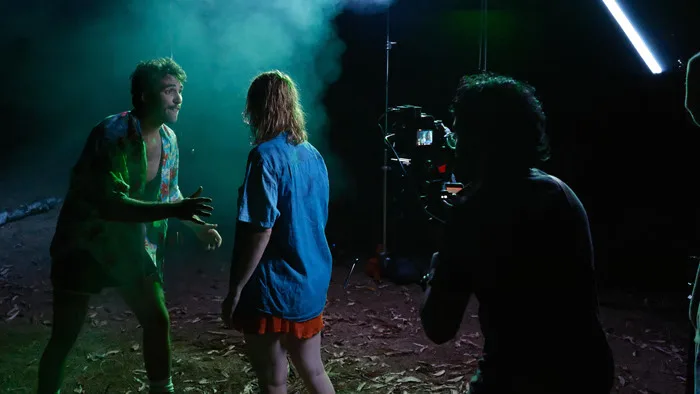Fifty years after Cyclone Tracy forever altered the city of Darwin in the Northern Territory, filmmaker Kostadinos Hatzivalsamis is bringing a powerful and deeply personal story to the screen.
Rooted in the lived experiences of his own family and other survivors, TRACY is a grass-roots, community-driven feature film made by Darwin locals, for Darwin locals.
Through years of meticulous research and storytelling, Hatzivalsamis aims to honour the resilience, unity, and spirit of a city that weathered one of Australia’s most devastating natural disasters. This isn’t just a story about a cyclone — it’s a story about people.
With a production marked by creative resourcefulness, community support, and moments of serendipitous brilliance, TRACY captures the heart of Darwin’s history while delivering an emotional message of hope, togetherness, and triumph over adversity.
To mark the 50th anniversary of Cyclone Tracy, we speak with Hatzivalsamis about his film and this is what he had to say.
Tell us a little bit about yourself and your Greek heritage / upbringing in Darwin.
Darwin’s got a large Greek population. Every year there’s the Greek Glenti, the Cyprian Wine Festival, so the community has a strong presence around town. I’m a first generation Australian-born Greek. Growing up, we mostly spoke Greek at home as well as attending Greek School every Saturday. This didn’t only teach the language, but culture, some history, a bit of religion. I attended for six years.
What inspired you to embark on this project, and how has your personal connection to Cyclone Tracy influenced the storytelling process?
My father was the initial inspiration for the film. Being a survivor of Cyclone Tracy himself, he would share stories from his experience nearly every Wet Season. So, hearing about where he and his family sheltered, they’re time in Darwin before being evacuated, their time down South and coming back – they were pretty much the first things that hit the page when I started writing the script in late 2020.
Throughout 2020 and 2021, I researched Tracy intensely, reading whatever I could. I also interviewed some survivors who still live in Darwin. From everything I had come across, a lot of the experiences were almost identical, so I was able to jot down a very basic timeline the characters would travel along and start building from there. Getting the timeline right and understanding the facts came first, then fishing out themes and character came later. I had to know what I was dealing with.
What emotions or memories from your family’s experience of Cyclone Tracy resonated with you the most, and how did you channel those into the film?
My family’s sense of humour resonated with me the most, to be honest. Whether it was a coping mechanism or not, the fact that they could swallow what was happening with some irreverence was interesting to me.
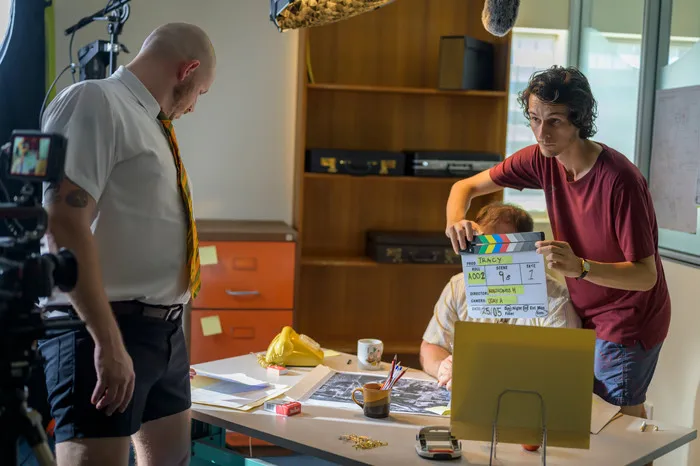
Were there any specific family stories or moments from your personal history that made it directly into the film? If so, can you share one that felt particularly powerful?
There were a couple of scenes I wrote, taken directly from my father’s experience, that didn’t make it into the film. One of my favourites was the story of him finding a bottle of champagne on Christmas morning for the rest of the family to enjoy with their remaining Christmas lunch. It struck me as overwhelmingly bittersweet.
As for what did make it into the film, there’s a scene where one of our protagonists, Lisa, sees her Greek neighbour Sevasti cleaning okra. My Yiayia would do this a lot. So, Lisa calmly sits with Sevasti and they begin to clean together. It’s a quiet scene that I think really conveys the slow, dreamy attitude Darwin had at the time.
How did the local community contribute to the film’s development, and what has their support meant to you?
The local contribution to the production of the film was staggering. We managed to gather some funds through a crowdfunding campaign. And within a month, we managed to exceed our target. Money aside, the support from local cast and crew wearing different hats during the shoot, the long hours, the favours, felt like such a labour of love. Every single individual who was on set was there purely for the love of making a movie and it really showed. I am so grateful to everyone who pitched in.
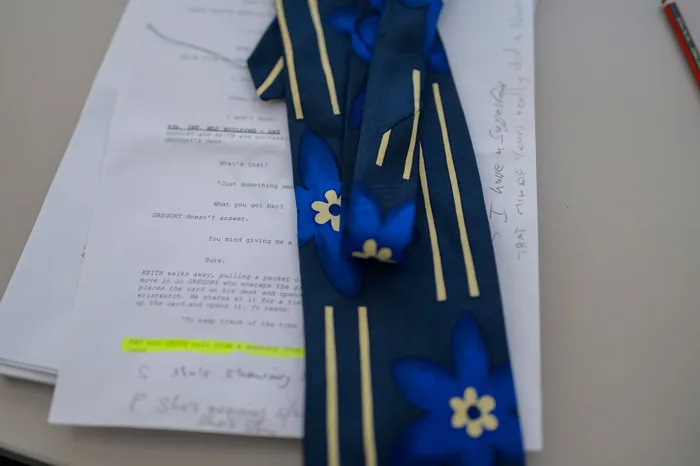
Can you share some of the most memorable moments or challenges you faced during the production phase? Were there any moments that felt particularly emotional or surreal given the historical context?
Every day of production had us on the back foot. From the moment you wake up, you’re behind schedule. Need to pick something up? You’re behind schedule. You need to breathe? You’re behind schedule. Someone forgets a costume, or a key prop, or a set of keys, or someone pulls out and you have to figure out how to get this scene… oh and the sun’s setting. It was six weeks of constant reshuffling, rescheduling, reorganising, making do and compromise. But, funnily enough, from everyone I’ve spoken to, this just seems to be the way shoots go.
One memorable experience was one day we had a key cast member pull out roughly five hours before call-time. We really couldn’t film the scene without them, we had everything else organised and ready to go. So, we went. Myself and my Director of Photography were wracking our brains about how we could get the same emotion and story beats across. To me, this seemed impossible to overcome at the time. We threw the script out, interpreted the feelings of the scene, figured something out and stuck to it. As a result, we ended up shooting one of my favourite shots of the entire film. So in a way, I’m grateful. If everything went to plan, it would’ve never happened. The big lessons I learned that day would’ve been lost.
In terms of historical context, it was interesting filming at Darwin High school which served as a survivor centre after Tracy. To be shooting scenes which may have happened at the same location fifty years prior, was surreal.
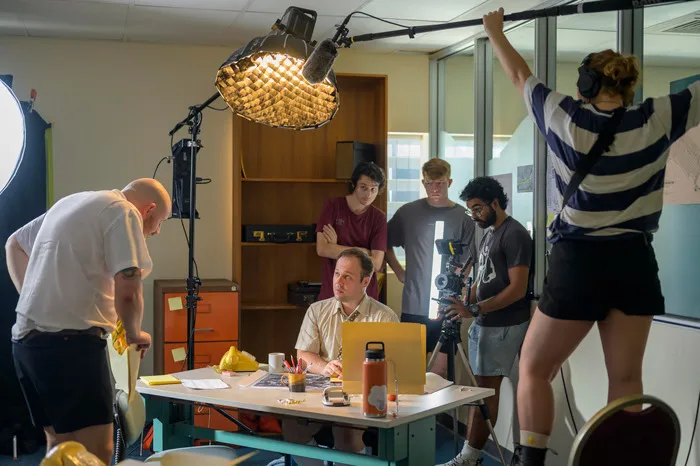
Since the film is based on true stories, how did you approach balancing historical accuracy with creative storytelling?
As much as you want to be historically accurate, you do sometimes have to take creative licence for storytelling. The film is ultimately a work of fiction. Having said that, I did try to keep true to the history of the event / period where I could. There were never really any hard decisions on what to keep in and leave out as the journey the characters go on is an amalgamation of everything I’d heard or read about. Some visual ideas of course had to be left out purely because of budgetary restraints.
Cyclone Tracy left lasting scars — both physical and emotional — on the people of Darwin. How did you portray that sense of trauma, recovery, and resilience in the film?
For the heavier stuff, we tried being as honest as we could. We never wanted to shy away from the reality of things, but didn’t want to be exploitative either. It’s a tricky balance of knowing how much to show to get the message across and when to stop. For the rebuild and recovery, it was a balance of showing it visually while being consistent with the respective story arcs.
With such a tight schedule and limited budget, what creative strategies did the production team use to bring this ambitious project to life?
A limited budget forces you to be creative. As long as what the camera sees looks convincing, it doesn’t matter what you used to get there. If you have to fix a milk crate to a light, or use a garden hose for rain, so be it. We never could, nor wanted to, show CGI buildings being torn apart. So, particularly for the cyclone scenes, we stuck tight on the characters and their reactions. The characters were always the focus. They are the audiences way into the story.
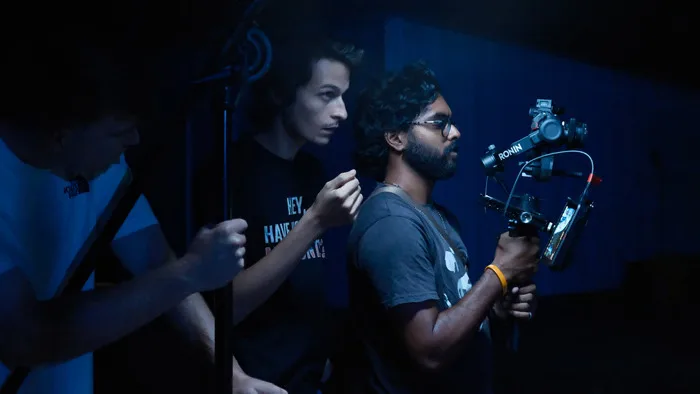
As we approach the 50th anniversary of Cyclone Tracy, what message do you hope the film leaves with audiences, especially those who were not alive to witness the events of 1974?
I really hope those who watch the film who didn’t experience Cyclone Tracy walk away with a feeling of hope. It’s a story about hope, triumph over tragedy, and helping your neighbour. I hope that it can remind people about togetherness.
Is there anything else you’d like to say?
To me, this story features a cyclone, but it isn’t about a cyclone. This is a story about people. It’s a story about people who, when faced with insurmountable devastation, overcame all obstacles, lent a helping hand, and rebuilt a city together.
